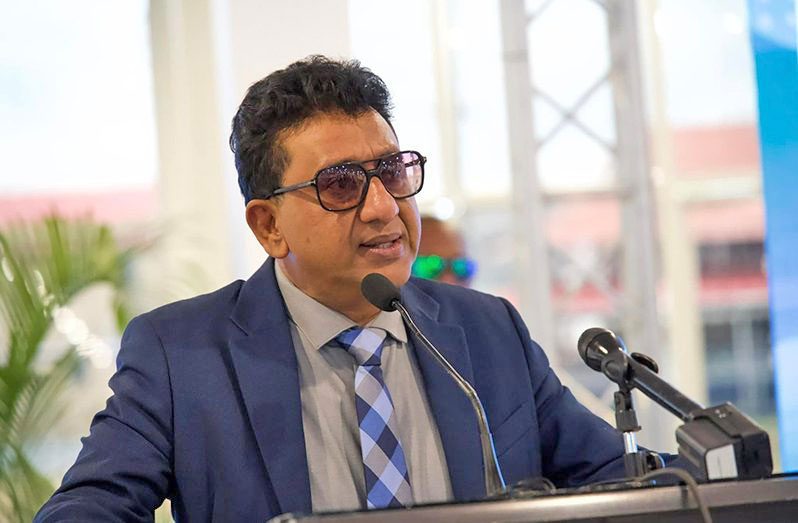–AG Nandlall says
ATTORNEY-General and Minister of Legal Affairs Mohabir Anil Nandlall, S.C. has refuted claims suggesting that he “secretly” filed the appeal to the Caribbean Court of Justice (CCJ) seeking to overturn the local Court of Appeal’s ruling on the case involving the unlimited parent guarantee.
During an interview with the Department of Public Information (DPI) on Sunday evening, the Attorney-General clarified that the application was filed in accordance with the guidelines set by the CCJ.
“The procedure is set down in the rules of the CCJ.
If it is an appeal court matter, the rules tell you how to file an appeal. And we filed it in compliance with the rules. So, I don’t know how it becomes a secret issue. Where does the secrecy come in?” Minister Nandlall asked.
He emphasised that conventional methods were employed in filing the appeal, and expressed perplexity regarding allegations of secrecy, merely because the application was not immediately disclosed to the media.
“I don’t know that I have a duty to give somebody in the press an appeal that I filed. Reporters know how to get legal documents; they have been doing it all the years. I don’t owe any such obligation to any reporter or news agency. The government doesn’t owe that obligation to anyone,” the minister stated.
Minister Nandlall also addressed what he termed “ridiculous” accusations directed at the government concerning the ongoing court proceedings, asserting that such allegations are “unfounded, misconceived and wholly wrong”.
The case originated with Guyanese citizens Frederick Collins and Godfrey Whyte, who filed proceedings with the High Court demanding that the Environmental Protection Agency (EPA) enforce the liability clause of the environmental permit issued to ExxonMobil.
The duo requested that the court ensure that Exxon assumes full financial responsibility in the unlikely instance of an oil spill.
The court ruled on May 3, 2023 in favour of the petitioners, mandating ExxonMobil to provide a signed parent guarantee for insurance coverage in potential oil spill scenarios.
Both the EPA and Exxon Guyana have appealed this decision, which is now under consideration by the Court of Appeal. The Attorney-General said the government has not had an opportunity to represent itself in these proceedings.
Minister Nandlall’s application to join as a party to the case back in December was denied on the grounds that the EPA can substantially represent the government.
However, according to the minister, the EPA is a statutory body that cannot speak on behalf of the government.
“It is not a government agency or department; it is an agency of the State. That is different from the Government of Guyana.
“That case has the potential to shut down the whole oil-and-gas sector because the contention is that there is a legal requirement for a guarantee, or some financial assurance as is required under the EPA Act, and the operations are going on within the oil-and-gas sector without this assurance being in place,” he explained.
As a result, it is possible that the company’s exploration licence can be revoked, and should this happen, operations within the sector cannot continue, Nandlall said.
Emphasising the contractual agreement between the government and ExxonMobil and its affiliates, the Attorney-General questioned why the government is not allowed to represent itself in the case challenging the legality of the very contract to which it is a party.
Consequently, the government has re-applied to present its case to the court.
“How can you challenge the legality of the operations under the contract, possibly shut the operations down, and the government that is not only a party to the contract, but is a significant beneficiary of revenue flowing from the contract, which it intends to use to develop the country for the benefit of its people…That very government you don’t want to be heard.
Where is the accountability, and who lacks the transparency here?” he questioned.
The minister further clarified that any government or affected citizen has the right to participate in these proceedings. If they encounter obstacles in doing so, they are entitled to appeal.
“That is all the government has done, and you find this hysteria in the public domain,” he further lamented.




.jpg)










